Interview with James Moore, Head of School at The Montessori School of Tokyo
Every year since 1987, thousands of overseas college graduates have flown to Japan to be a part of The Japan Exchange and Teaching (JET) Programme. In 2001, James Moore, Head of School at The Montessori School of Tokyo (MST), was one of them.
The JET Programme was established by the Japanese government, aiming to give Japanese children a broader perspective of the world by allowing foreign university graduates to teach English at schools all over Japan and also participate in local community life.
Moore, who was then a final year Mathematics and Computer Science student at The University of Leeds, UK, was not sure what he would like to do next in life. After finding out one of his friends was applying to the programme, he decided to follow. Like many other college graduates who did not know how life would unfold after hopping on a flight to a foreign country, Moore did not expect the programme would lead to a 20-year journey in Japan.
“I just thought, oh, that sounds kind of perfect. It’s one year. It’s temporary.”
After a week, he applied to be a JET English teacher, and was later placed in Mie prefecture. Little did he know it would not be one year, it would not be temporary, and it would most definitely not be what he had imagined.
Growing up with “I don’t know what to do.”
Just like many kids who grew up within a standardised education model, Moore experienced the traditional way of learning. In the UK, a typical school path means navigating exam after exam at school, getting a college degree, and then finding a job and embarking on a career path.
Although Moore always enjoyed sports, drama and music at school, he also performed well in the more conventional academic areas. When selecting a university degree, he opted for the “safe” path by choosing to major in more academic and ‘secure’ fields – mathematics and computer science.
“It never crossed my mind that I would do anything else other than finish high school, go to university and then get a job.”
Even though Moore chose to major in mathematics and computer science, he did not forget about his passions. During his university life, he was the lead vocalist of The Leeds University Dance Band and also the President of the Leeds University Stage Musical Society.
“It was kind of an interesting realization that all my fond memories – my enjoyment, my passion – was definitely the music and the drama. That’s what I remember fondly,” said Moore. “That’s where I spent my time.”
Inside the lecture theatres, he started to question the meaning of his educational journey, especially when he put himself into computer science – a major he did not particularly enjoy.
“I didn’t really get it once it got more complicated. I didn’t truly understand it. It didn’t really mean anything to me. I could “do it” but I was just jumping through academic hoops. Memorize, write it down, pass a test, repeat.”
By the time of his final dissertation for his computer science studies, Moore decided to combine his interests and studies together and present computer science in a slightly different way. He titled his project “Singing to Students: A Study in Entertaining Education”, and started writing educational songs about elements of the computer science curriculum – including how to write programmes in the C++ coding language – with the intention being that they would help other students like him be more engaged with the content. He would then perform these songs to the first year university students, receive feedback, and made this research into his final graduation dissertation, which formed part of his Joint Honours (double major) award of a degree in mathematics and computer science.
Through these college experiences of trial and error in different ways of learning and doing what he enjoyed, the dots started to connect between Moore and the world of education.
The Journey to the Montessori School of Tokyo
When Moore was first placed in Mie prefecture as an English teacher, he was one of the very few foreigners in town. He would not only teach English to the kids, but he also participated in PE classes and helped with school plays and music.
“I also started snowboarding regularly on the weekends, and it was just a really nice lifestyle. My Japanese was improving pretty quickly in that situation,” said Moore. “But I certainly never expected to stay for so long.”
After three years in Mie prefecture, he faced a dilemma: to stay in Japan or to go back to the UK. After some time, he decided to move to Tokyo and look for jobs in international schools with the main motivator being an opportunity to “experience Tokyo” and “continue to develop Japanese language abilities” before eventually moving back to the UK. That was when he first discovered The Montessori School of Tokyo.
“I had no doubt that MST was what I was looking for. I wasn’t really sure why, but I just knew, okay, this place is cool. It’s very different.”
In the Montessori education system, the learning process is quite divergent from traditional methodology. In the classroom, teachers observe and guide the students individually. If a student is capable, the teacher will introduce them to increasingly complex concepts, and they will continue to learn and develop at their own pace, guided by their own distinct interests and capabilities. There is no need for any child to be restricted by a predetermined curriculum. In Montessori schools, the children don’t follow the curriculum – rather, the curriculum follows them.
Seeing kids scattering around the classrooms, engaging in a variety of activities, rather than being seated at desks in lock-step with one another, Moore was intrigued – he had never seen anything like this before.
The Montessori Belief and System
In the conventional school system, the goal is the exam, and students memorize what will eventually be tested. In the Montessori system, learning is guided by interest and passion.
Moore recounts the story of one young student who loved soccer so much it worried his parents, who were concerned that their son’s only focus was playing soccer, talking about soccer, and trading soccer cards. They heard he was doing a “soccer project” at school and they contacted MST wanting to know if their child “was really learning anything”. The class teachers invited the parents to visit and see the project their son had been working on. Much to their surprise, the teachers had guided the child to explore various subjects within the framework provided by their passion in soccer, including hand-drawn maps displaying different cities, countries and continents (engaging the student in geography); bar-charts comparing the various capacities of famous soccer stadiums (mathematical charts); and researching the history of various favourite teams, as well as their players (requiring extensive research, reading ability and writing components). Various pages were also decorated with team crests (exploring artistic techniques and expression).
“It was this amazing project because of his passion and interest in soccer; that was the fuel and vehicle for his learning,” said Moore.
Throughout the journey in Montessori, Moore also undertook a three-year Association Montessori Internationale (AMI) Diploma in order to become a fully certified AMI Elementary teacher. During the training courses, what excited him the most was not only the realization of becoming a qualified Montessori teacher, but the new knowledge that he acquired as an adult. Geography, math, biology, language, the world – Montessori offers a totally different way of learning and he wished this method had been offered to him when he was a child.
A classic example is the famous binomial cube which Moore shared with me, and also likes to demonstrate on his school tours for prospective parents.
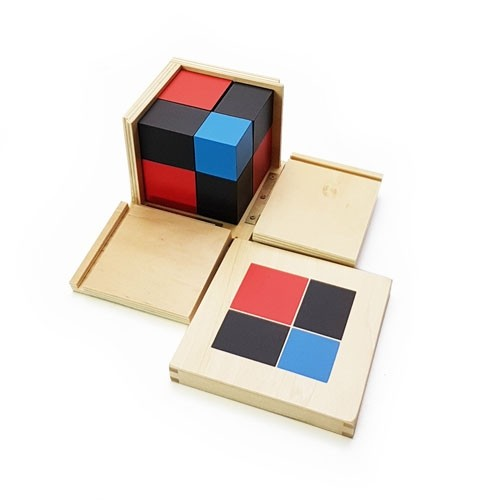 It is a cube that is used in different programmes, from early childhood through the elementary levels and even beyond. When students are younger, they come to understand this material as a “sensorial” colour and shape matching exercise. Faces of the same color fit nicely together, and the blocks then form a perfect cube that fits into the box. When students become older, they start learning about squaring, cubing and eventually algebra and at this time, they come to understand this cube as a physical representation of the binomial equation (a + b)3 = a3 + 3a2b + 3ab2 + b3
It is a cube that is used in different programmes, from early childhood through the elementary levels and even beyond. When students are younger, they come to understand this material as a “sensorial” colour and shape matching exercise. Faces of the same color fit nicely together, and the blocks then form a perfect cube that fits into the box. When students become older, they start learning about squaring, cubing and eventually algebra and at this time, they come to understand this cube as a physical representation of the binomial equation (a + b)3 = a3 + 3a2b + 3ab2 + b3
As students are able to see the colours and manipulate the physical blocks, they find that they are not just memorizing an abstract formulae. Rather, they are discovering the formula themselves, understanding the relationships between the shapes and comprehending what the formula actually means and represents in a very concrete sense.
Looking to the future
Although short-term challenges remain in terms of navigating COVID-19, Moore revealed that MST has been engaged in preliminary explorations into expanding the current school (which ends after middle school) to include the high school years.
After all, Montessori education is not only about ‘learning’ in the conventional academic sense. Maria Montessori, the creator of the Montessori method of education, believed that education is essential to one day achieving world peace. Creating a better world, through guiding children to become confident, respectful and compassionate members of society is ultimately the inspiration for the Montessori philosophy.
At MST, children have opportunities to not only learn inside the classroom, but they are introduced from a young age to an area of the curriculum called ‘Practical Life’: dressing themselves, cooking, repairing and cleaning, planting their own crops, engaging in real activities that matter in the real world. This forms a strong foundation for independence and confidence. The school wants to share a rich appreciation of the world we share with every child. Throughout their Montessori education, children and adolescents build their own values through various meaningful interactions, learning to become caring, kind and confident human beings.
“We want children to know they really can make the world a better place,” said Moore. “I suppose when I think about the future, that’s what I really hope for as well”
Chinese version of the interview
Latest posts by Irene Lu (see all)
- 東京蒙特梭利學校校長專訪 – James Moore - 2022-02-25
- Interview with James Moore, Head of School at The Montessori School of Tokyo - 2022-02-25
- BXG(Beyond Experience Group) – 連結台日,超出你想像的公司 - 2021-07-18




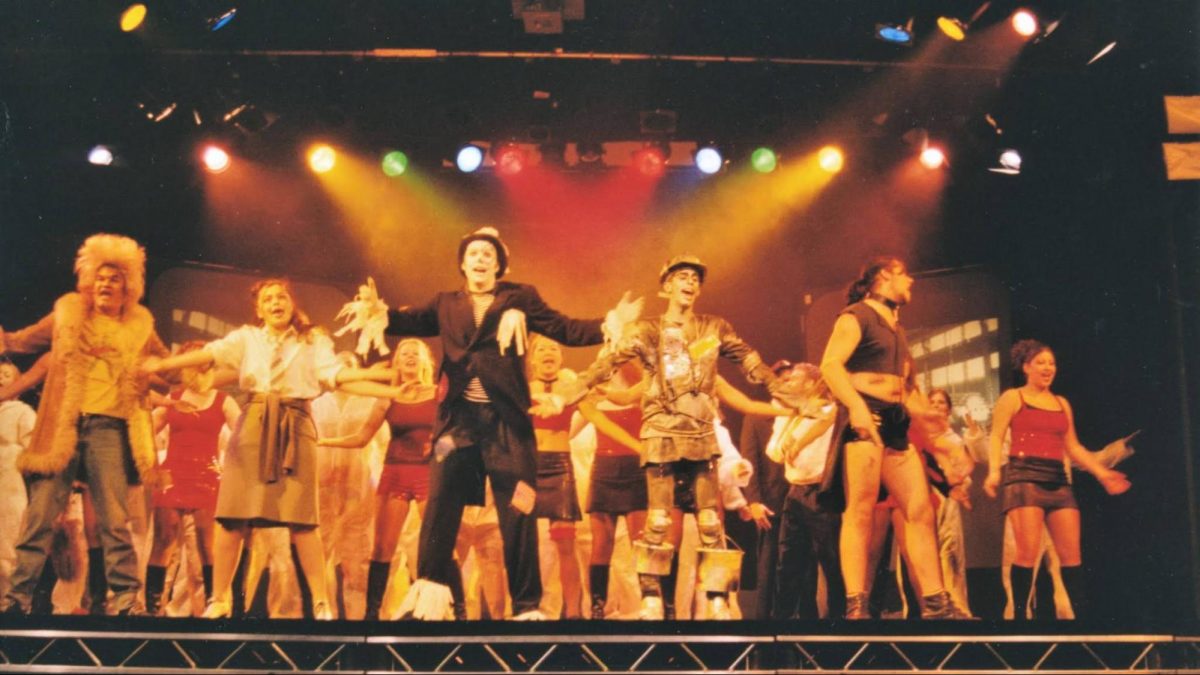
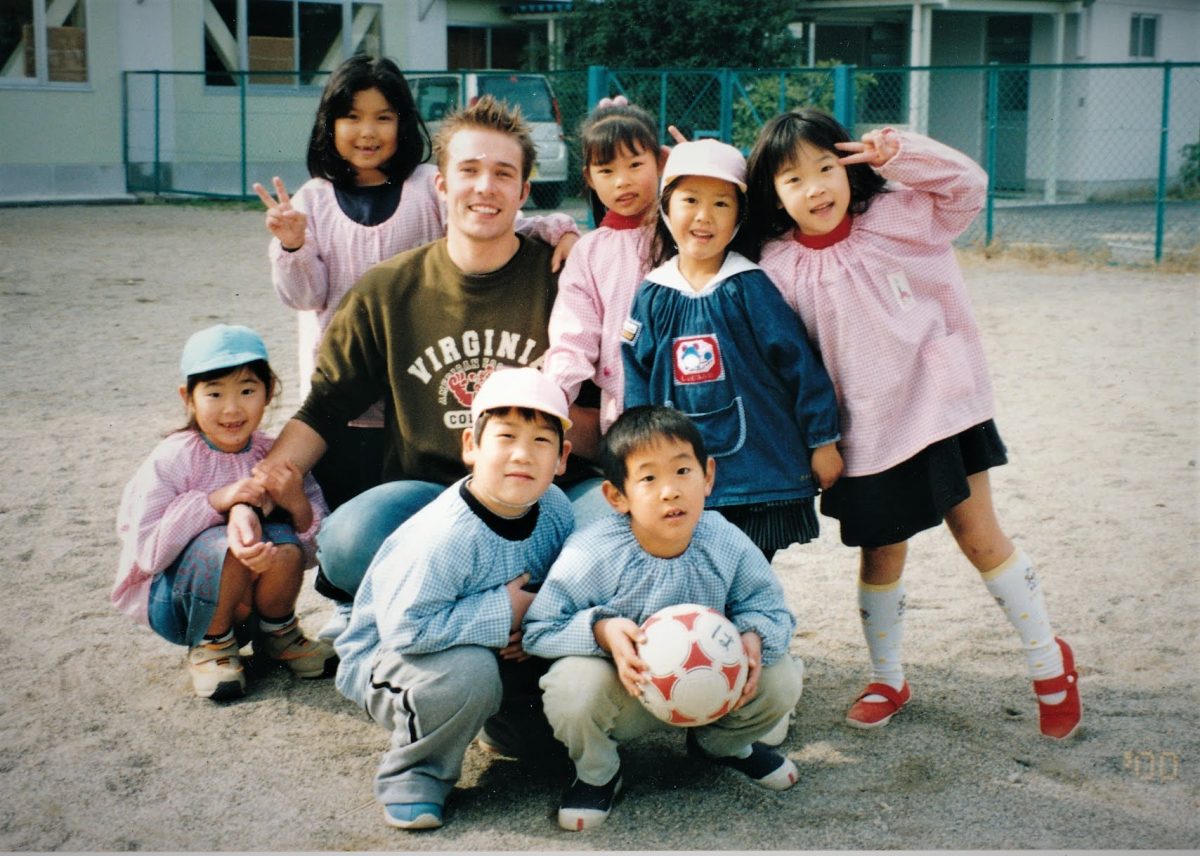
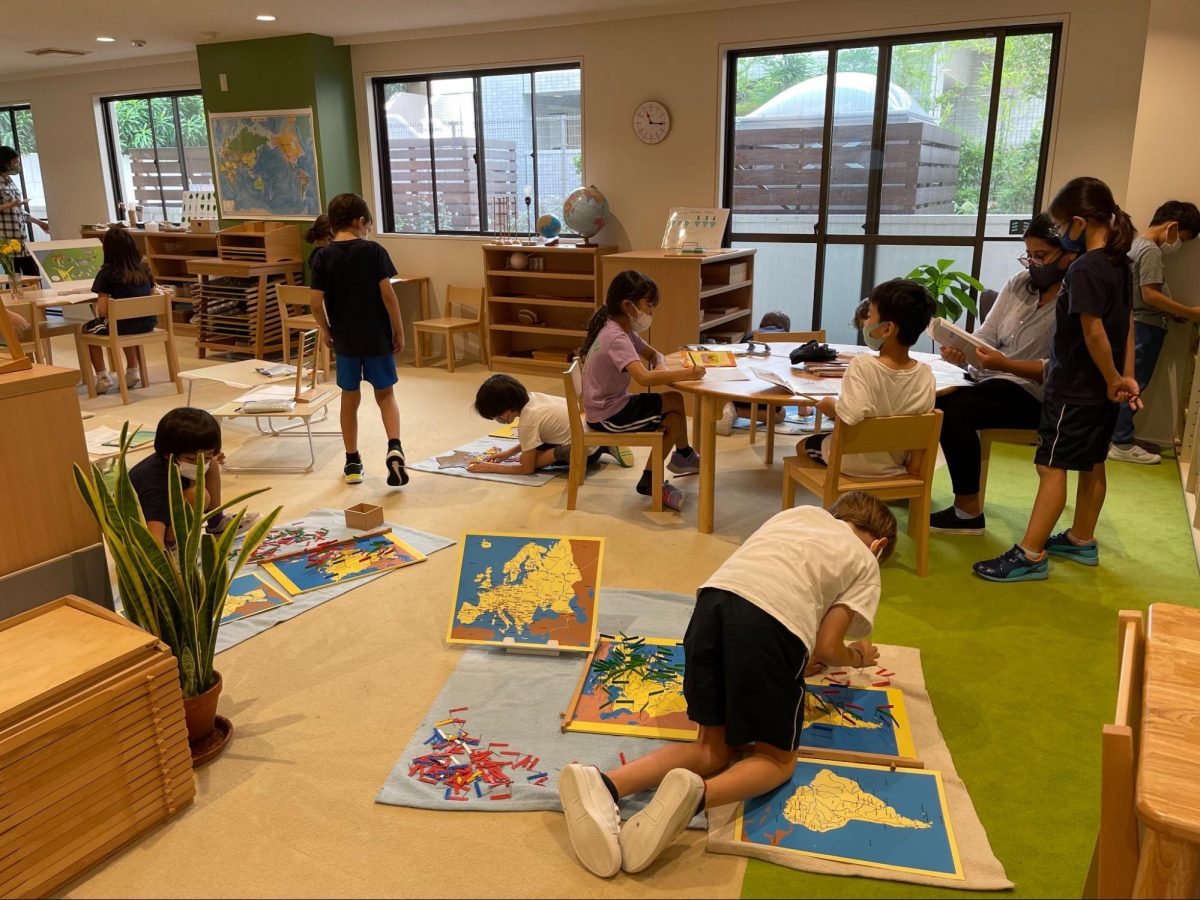
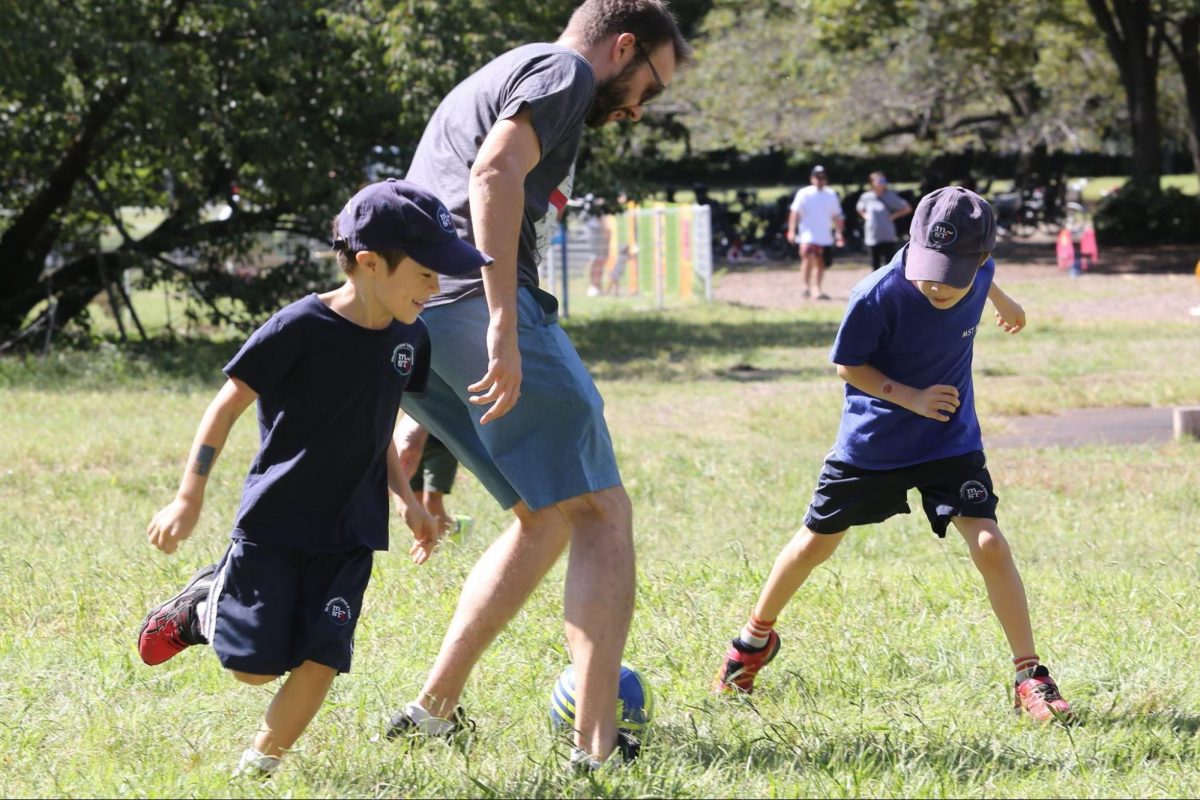
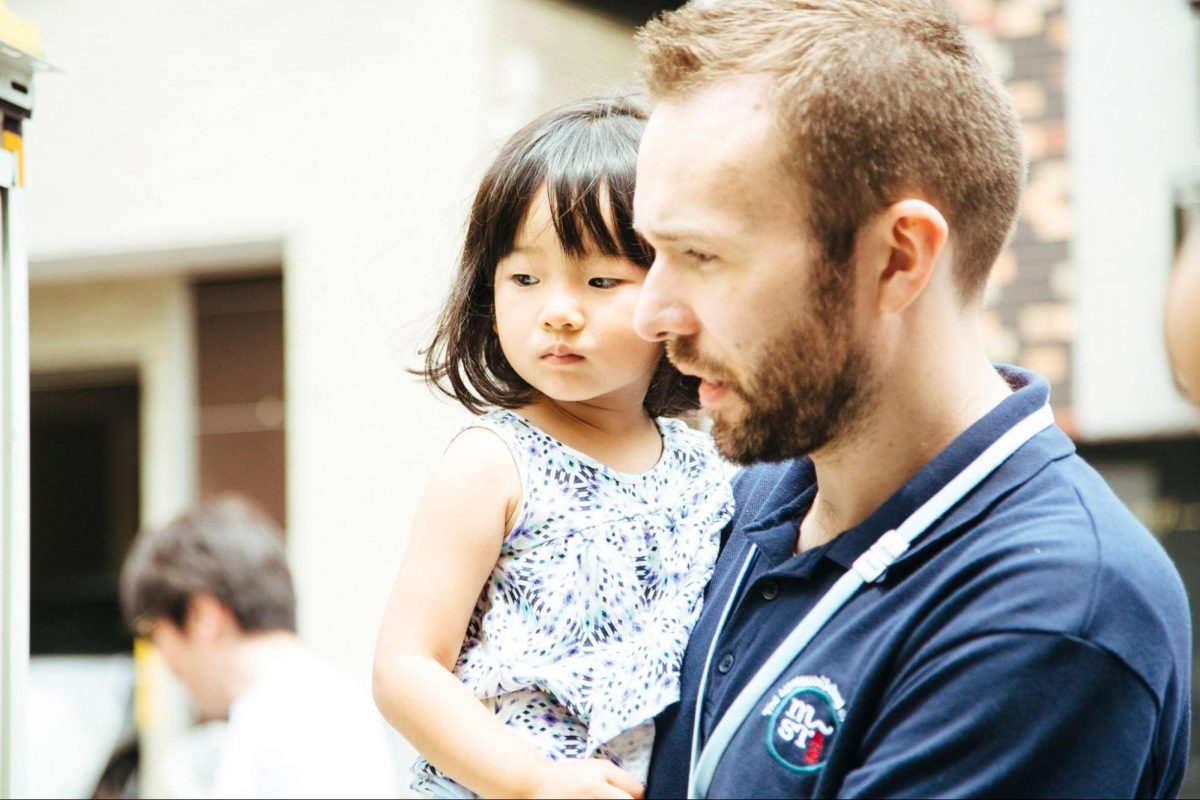




Pingback:東京蒙特梭利學校校長專訪 – James Moore | 日本職活 Worklife in Japan
2022-02-25 at 12:47:33